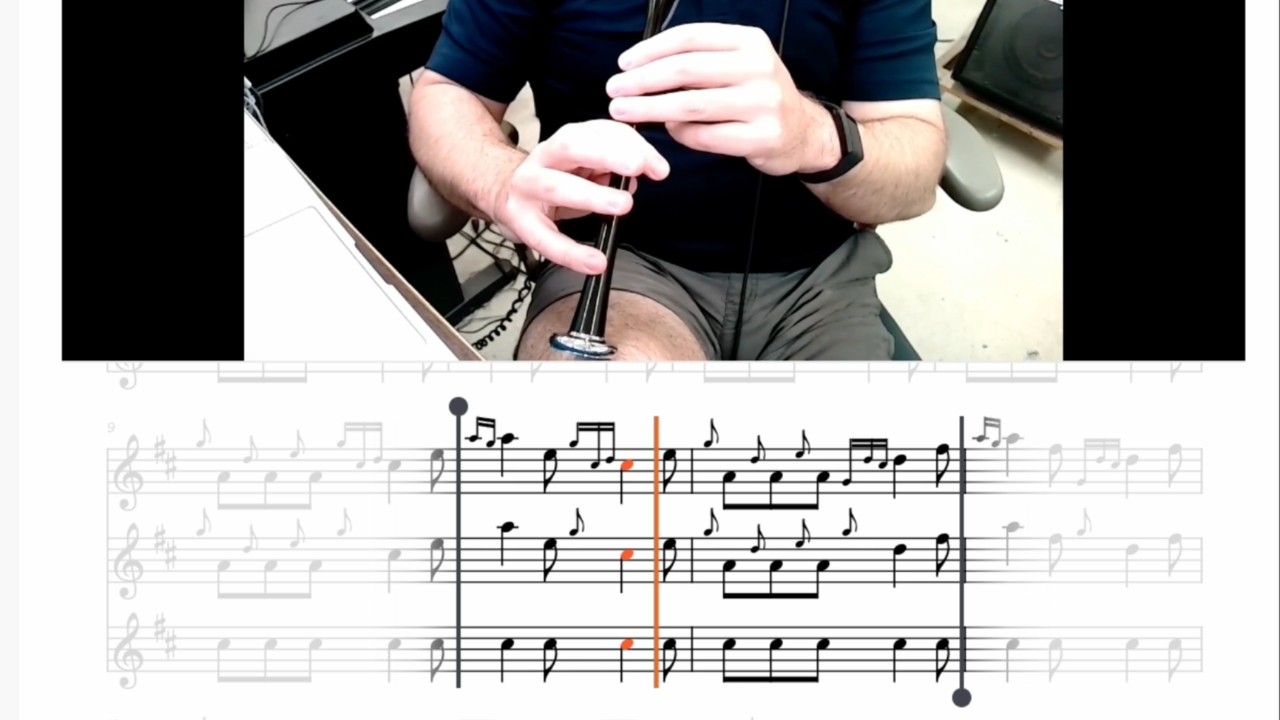Do You Need a Second Set of Bagpipes?
Dec 16, 2024
I hear this question often: "Do you need a second set of bagpipes that are set up for solo competition?"
It’s natural to wonder if you need a specialized setup to stand out and impress the judges. Many pipers use easier reeds in a solo setup, and may prefer different drone reeds or customizations for their own pipes compared to what their pipe band might play.
But before you dive into upgrades and extra gear, let’s talk about what really matters when building a setup for solo performances.
Do You Really Need a Second Set of Pipes?
While a second set of bagpipes it might sound like a good idea – and after all, as enthusiasts it can be tempting to want to "collect" instruments – managing two sets of pipes is a lot of work.
Think about how long you already spend maintaining your pipes... tying in your bag, checking it's airtight, replacing hemp on your joints and drone reeds, seasoning your hide bag (if you have one), changing chanter reeds and retuning your chanter - the list goes on. Now multiply that by another set, which you also need to adjust for your comfort, and get familiar enough with that it's also completely predictable in a high pressure situation like a solo contest.
All that extra time you spend managing that shiny new set will also cut into the time you spend practicing with your primary set, which is the one you’re going to be most familiar with heading into a solo contest anyway.
Instead of doubling up, think about how you could fine-tune your current setup to be suitable for both your band and solo competition needs. Many pipers simple keep a separate chanter and/or drone reeds for solos, and just switch out, plug and play them in the appropriate context. This way, you’re optimizing what you already have without the added hassle or expense.
Keep It Simple, Avoid the Hype
With so many gadgets and accessories on the market, it’s easy to feel like you need every cutting-edge tool out there. Moisture control systems, high-tech reeds, or fancy pipe bags might sound appealing, especially if top players are using them. But more gear often means more maintenance... and more headaches.
A straightforward setup, well-maintained and carefully tuned, is often all you need. Strip away unnecessary extras and focus on the fundamentals of great playing.
Simplicity, as you'll know if you've read anything about my 11 Commandments of Mastery, often delivers the best results.
Bore Size: Should You Care?
This is another question that pipers bring up a lot – does the size of your drones' bores make any different to your sound?
While some pipers may swear by certain sizes, I suspect you'll find that most top players don’t even consider this when they're setting up their instrument. Bore size may have the tiniest impact on your tone, but so does the combination of drones, bag, moisture system (if you have one), and so many other variables... bore size is certainly not a game-changer for most players.
In fact, unless you're an elite professional level player, I'd suggest that rather than getting hung up on the intricacies of the technical details, a far better use of your time and energy would be to focus on honing your practical skills. Judges will be looking for clean, precise playing far more than subtle tweaks in your instrument's specifications. That marginal difference in tonal quality will make exactly zero difference if you can't blow steadily or produce quality grace notes or play without crossing noises.
Building Your Solo Setup: Start Small
So let's say you do want to set up a solo set of pipes. The best solo bagpipe setups aren’t built overnight – they evolve over time, through trial and error based on your own personal experience, preferences, and what works for you.
Start with what you already know and trust: a reliable, airtight bag; drone reeds that produce a tone you like in your set of pipes (and that you can adjust easily and predictably under pressure if needed), and a chanter reed that you are comfortable playing (check out our Scotland the Brave test for more on how to check this). Then as you gain experience, you can make adjustments based on real feedback from your playing.
Some pipers prefer to play an easier reed in a solo contest so they can focus on their fingerwork, rather than getting an arm workout to produce more volume or a different tone (whereas some bands prefer to play harder reeds in band contests for the collective tone and volume they produce). But everyone is different, and your own personal fitness and preferences for sound and setup will lead you to build a set of pipes that's perfect for you.
Focus on clarity, resonance, and control, and let those guide any upgrades you make over time.
Most importantly, changes should support your growth, not distract from it. Upgrade parts because they are contributing to your sound, not because they're the newest trend or someone said you should...
Practice: The Ultimate Secret Weapon
Want to stand out? It’s not about the fanciest setup, it’s about how you play. The best way to “slay” in competitions is to practice with intention. Work on perfecting your fingerwork, eliminating crossing noises, and nailing the rhythm.
Judges care more about a musical, technically flawless performance than they do about the brand of your pipes or the complexity of your setup.
Most Important of All: Enjoy the Journey!
At the end of the day, solo competitions are about showcasing your talent and love for the music. You don’t need to overhaul your setup or chase the latest trends. My suggestions would be to focus on refining what you have, practicing with purpose, and letting your playing speak for itself.
BUT (and it is a big 'but')... if getting a new set of pipes brings you joy, or adds to your enjoyment of the pursuit of piping perfection, then you should always do what makes you happy. Just don't spend too much time chasing the shiny new toy, and remember to practice your fundamentals - it really is the secret sauce for long-term success!
Check out this Dojo Conversations podcast as Jim and I answer this question in more detail (including how to S.L.A.Y. in a contest!) and dive into some tips and tricks for setting up a solid instrument for solo competitions.
Stay connected - subscribe to our free Weekly Digest!
Get bagpipe knowledge delivered to you every Monday! Tips and tricks, podcasts, special offers, and more.
We hate SPAM. We will never sell your information, for any reason.




